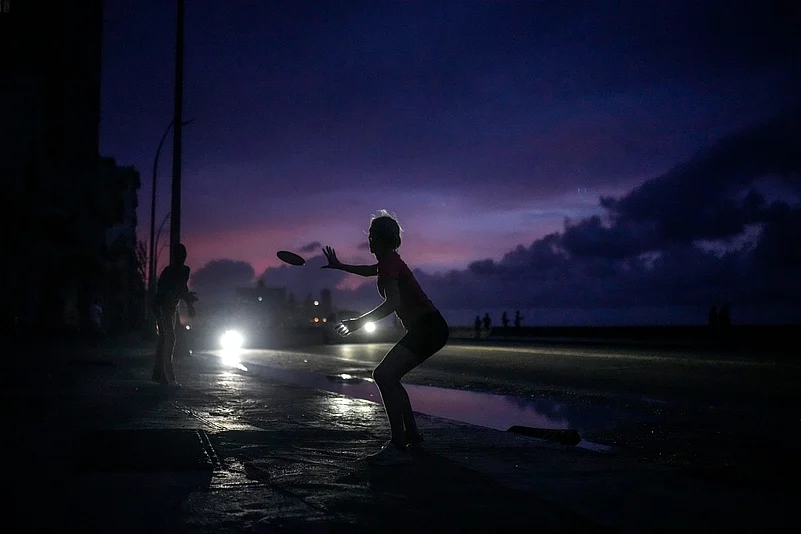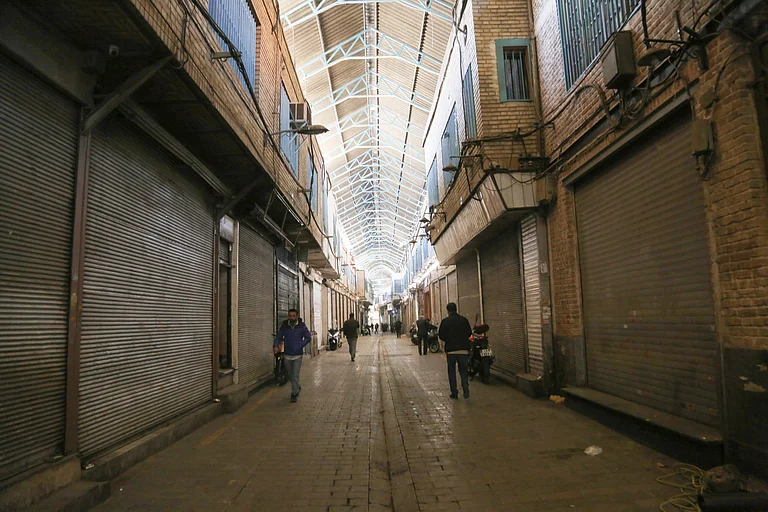Cuba faced a nationwide blackout on Friday after one of the island's major power plants failed, leaving millions of Cubans without electricity and prompting the implementation of emergency measures by the Communist-led government.
The Energy Minister informed people about the outage hours after the government announced that one of the country's main thermoelectric plants, La Antonio Guiteras, had ceased operations at around 11 a.m. local time. Officials had said that it was a temporary event.
As the entire 10 million population of the country was left without power, the government implemented emergency measures to cut down demand, including suspending classes, shutting down some state-owned workplaces and cancelling non-essential services.
The blackout, which began late Thursday, witnessed 1.64 gigawatts go offline during peak hours in the early evening, about 50 per cent of the country's total demand at the time, Cuban officials said.
Meanwhile, Prime Minister Manuel Marrero sought to address the concerns of the citizens about the blackout. "The situation has worsened in recent days," Prime Minister Manuel Marrero said in a special televised address early on Friday. "We must be fully transparent... we have been halting economic activities to ensure energy for the population," he added.
Alfredo López, the chief of the Electric Union (UNE), also accompanied Marrero during the address. The Cuban PM said that the outage was caused by the increased demand from small and medium-sized companies and residences' air conditioners, as well as breakdowns in old thermoelectric plants that have not been maintained properly, and the lack of fuel to operate some facilities.
Changes to electricity rates for small and medium-sized companies, which have increased rapidly since their authorisation by the communist government in 2021, are also being considered, Marrero added.
The Prime Minister tried to address and calm people's concerns over the outage, citing an expected inflow of fuel supply from Cuba's state-owned oil company, The Associated Press reported.
Though the country has grown used to frequent outages amid the economic crisis it is grappling with, the size of Thursday's blackout left several people on edge. The doors and windows of people's homes -- usually open at night -- were shut and candles or lanterns were seen being lit inside the homes.
In September 2022, after Hurricane Ian passed the country, Cuba's grid collapse left the entire island without power for several days. Though authorities eventually re-established the power, not before protests broke out in various cities across the country, including Havana.
Reasons Behind Collapse
Since Cuba produces very little fossil fuel on its own, it depends almost entirely on imports to ensure adequate generation.
Notably, Cuba's long-time ally Venezuela also cut down fuel shipments to the island by half this year as it is struggling to keep supply at bay at home. Russia and Mexico have also slashed exports to Cuba, forcing the cash-strapped state to seek far pricier fuel on the spot market.
In addition to the already offline smaller plants, the largest power plant's malfunction led to the outage. Inclement weather also delayed the arrival of fuel from tanker ships offshore, leaving the island's power plants to starve. With this, the entire grid collapsed.
US Denies Role In Grid Collapse
Though Cuba has long blamed the United States Cold War-era trade embargo as well as the most recent sanctions imposed by former US President Donald Trump, Washington denied having any role in the recent grid collapse after the Cuban President levelled similar allegations again.
However, US sanctions complicate the funding of fuel purchases and spare parts for Cuba. They also scare away many oil tankers, leaving Cuba and Venezuela to depend on their obsolete fleet for transportation, Reuters reported.
What Is Cuban Govt Doing?
The Cuban government has said that it has started investing in a long-term plan to produce an increasing percentage of its electricity from renewable sources -- primarily solar.
Earlier this week, local media reported that 26 solar farms were under construction across the island, with the goal of new installed capacity of 1,000 megawatts in two years. Another similar project is due to be completed by 2031.




















.png?w=200&auto=format%2Ccompress&fit=max)





